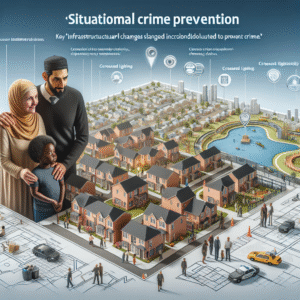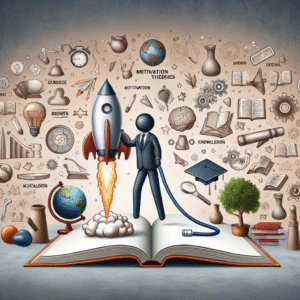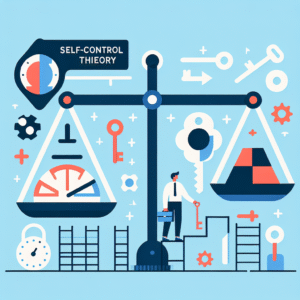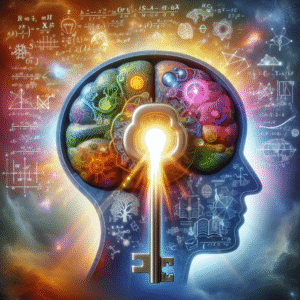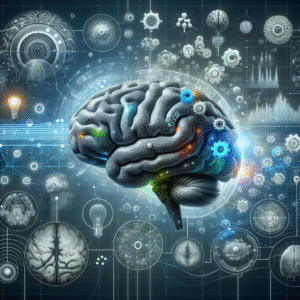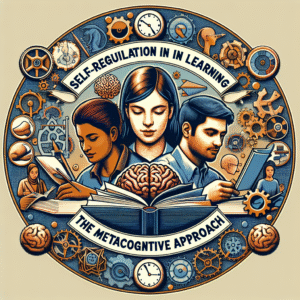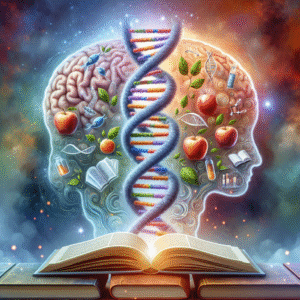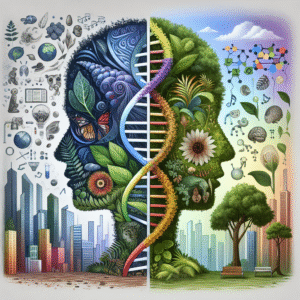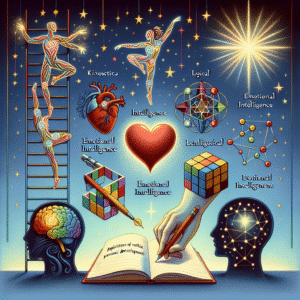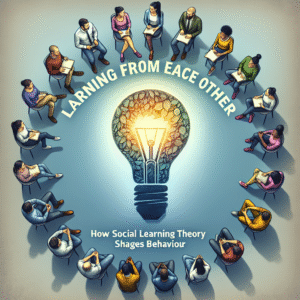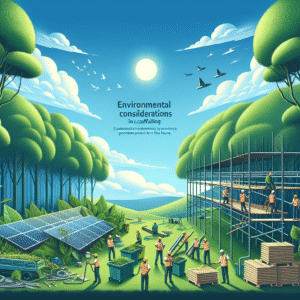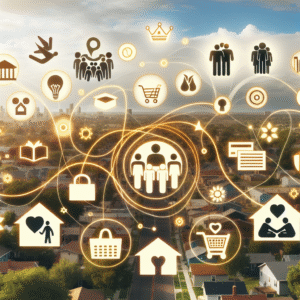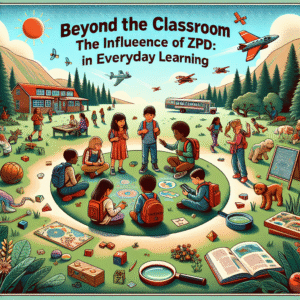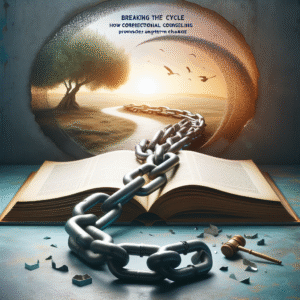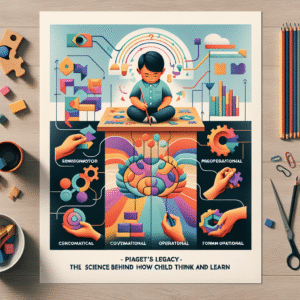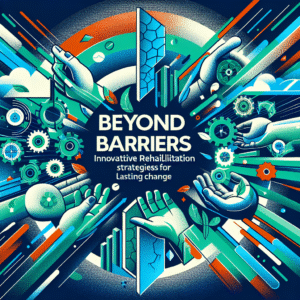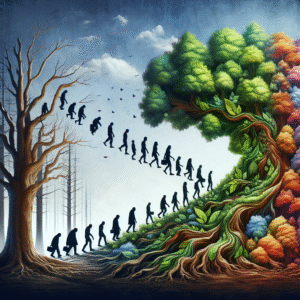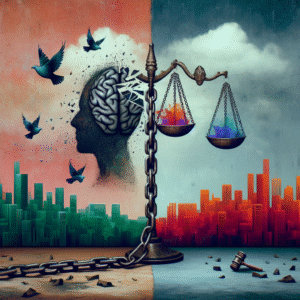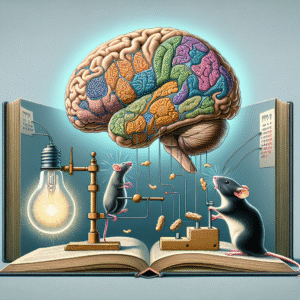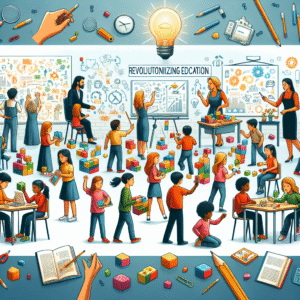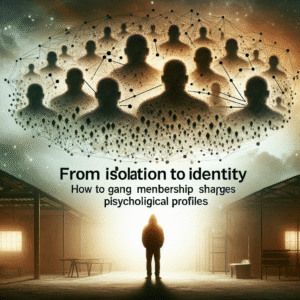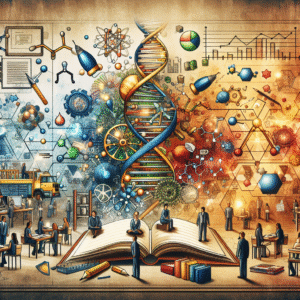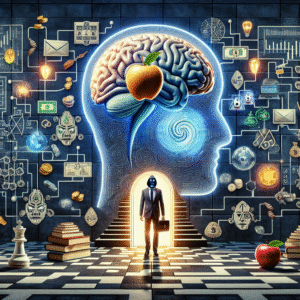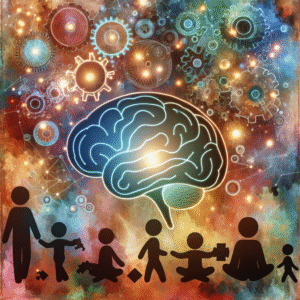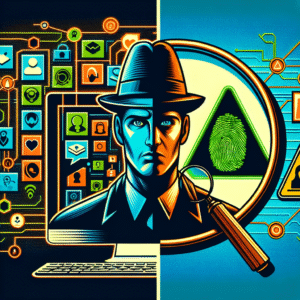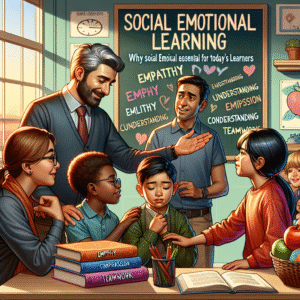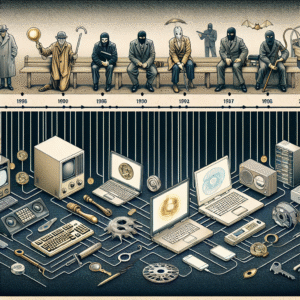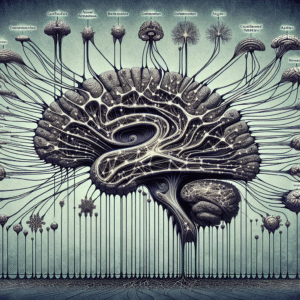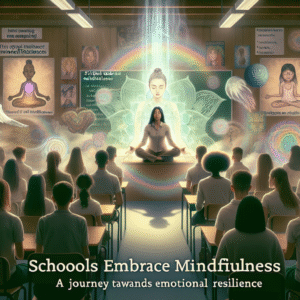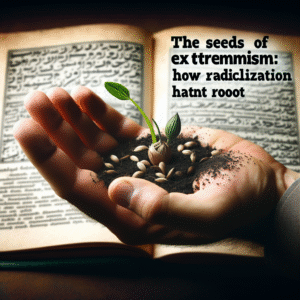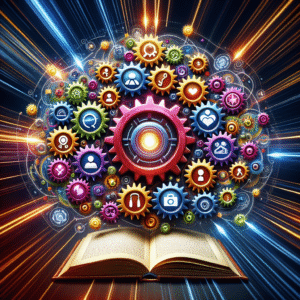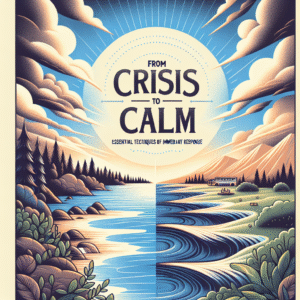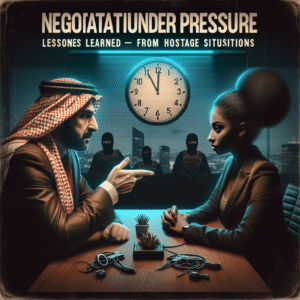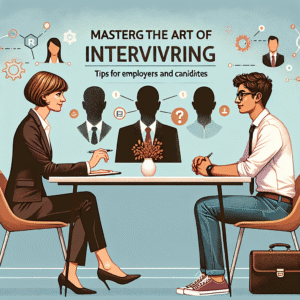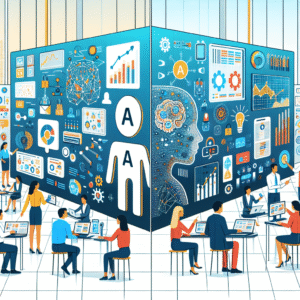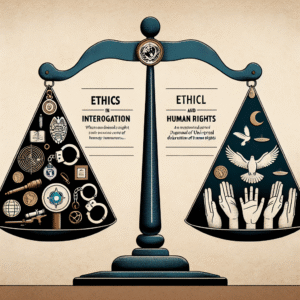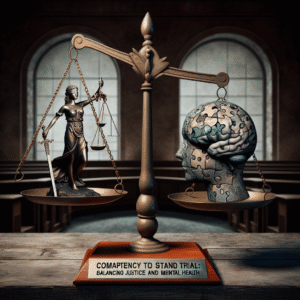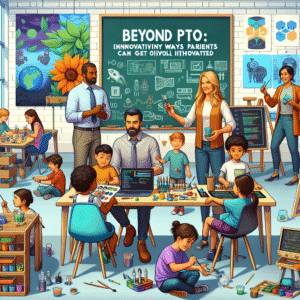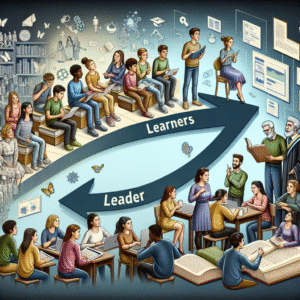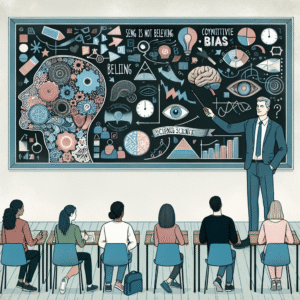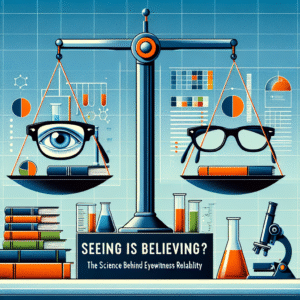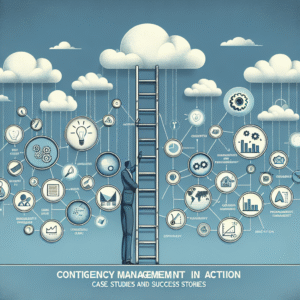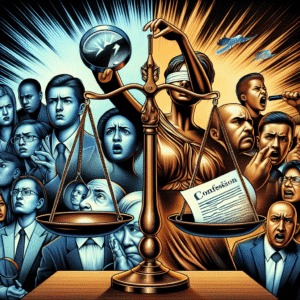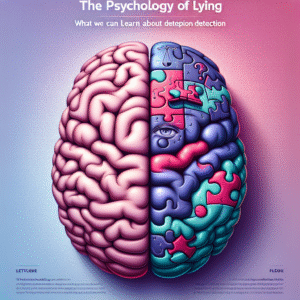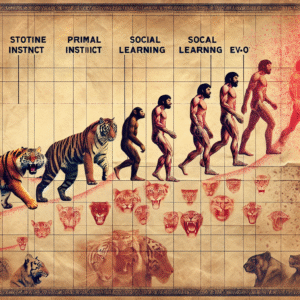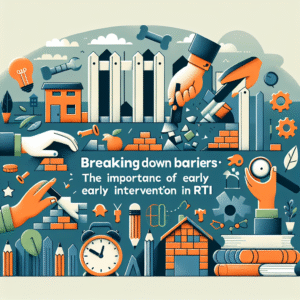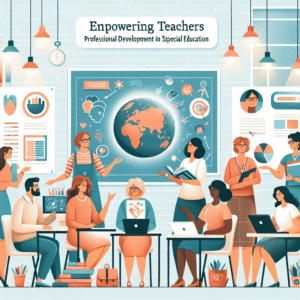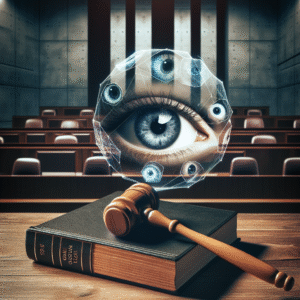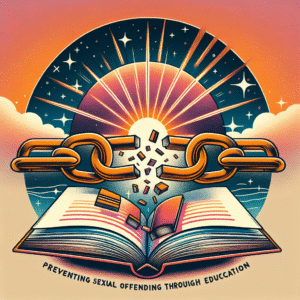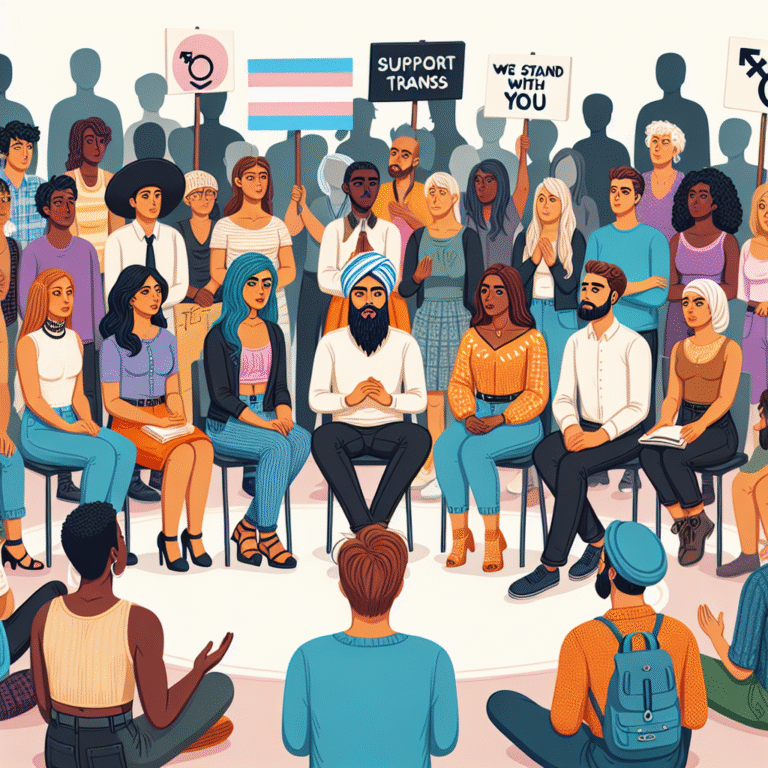Introduction Imagine waking up every morning excited about what lies ahead—not just because of external rewards, but because you truly love what you do. This scenario is a testament to the power of intrinsic motivation, which is often the secret sauce behind top performers in various fields. While external rewards like wealth and recognition can motivate individuals, it’s the...
Social Learning Theory
Introduction Imagine walking through your neighborhood, feeling not just safe but secure. You smile at a passerby, and the vibrant schoolyard buzzes with children’s laughter. This scene isn’t just a product of luck; it’s often the result of strategic planning and focused efforts on crime prevention. "Behind the Scenes: How Situational Crime Prevention Shapes Safer Communities" explores the transformative...
Introduction In an educational landscape constantly evolving with new teaching techniques and technologies, the role of motivation theories cannot be overstated. Fueling Success: The Role of Motivation Theories in Education forms the bedrock of effective teaching and learning. As schools and educators strive to ignite a passion for learning, understanding motivation theories becomes essential. Here, we delve deep into...
Introduction Imagine standing at a crossroads—a choice lies before you, and it could define your future. Do you indulge in short-term gratification, or do you resist temptation for long-term success? This critical moment illustrates the power of self-control, a concept rooted in psychology that significantly impacts both personal and professional domains. Self-Control Theory: The Key to Personal and Professional...
Introduction In a world filled with constant distractions and temptations, impulse control has become a crucial skill for navigating daily life. Whether it’s resisting the urge to indulge in unhealthy snacks, refraining from impulse purchases, or managing emotional responses, mastering impulse control can significantly shape our decisions and future. This article will delve deep into the multifaceted nature of...
Introduction In the ever-evolving landscape of education, traditional methods alone may no longer suffice to prepare students for academic and life success. Unlocking Potential: How Self-Regulated Learning Fuels Academic Achievement highlights a pivotal concept in modern education: self-regulated learning (SRL). As students face increasing demands and the world rapidly changes, the ability to self-direct their learning becomes not just...
Introduction Imagine being able to peer inside the human mind and witness thoughts as they take shape. The pursuit of understanding how our brains work has captivated scientists, philosophers, and hobbyists alike for centuries. With technological advancements in brain imaging, a new era is unfolding, one that promises to unlock the mysteries of cognition. Seeing Thoughts: How Advanced Brain...
Introduction: Why Self-Regulation Matters In an increasingly complex world, the ability to manage one’s own learning process has become not just beneficial, but essential. Imagine a student who approaches their studies not just with raw intelligence, but with a toolkit equipped with self-regulation strategies that empower them to reflect, assess, and adapt. This is where Self-Regulation in Learning: The...
Introduction Imagine a world where your choices—what you eat, how you interact with others, and even your hobbies—are deeply influenced by your DNA. Recent scientific discoveries have unveiled an intricate web linking genes to behavior, suggesting that our daily choices may not be as free as we’ve always thought. The topic of Genes and Behavior: The Hidden Connection Between...
Introduction Have you ever wondered what makes you, you? Is it the genes you’ve inherited, or is it your upbringing and environment? The debate of Nature vs. Nurture: The Biological Basis of Personality Development has puzzled psychologists, researchers, and laypeople for decades. It’s not merely an academic discussion; it impacts how we understand our relationships, our behavior, and even...
Introduction In a world where the definition of success often leans heavily toward academic achievements or financial stability, it’s time to take a broader view. Rethinking Success: Applications of Multiple Intelligences in Personal Development serves as a critical examination of how we define and achieve success in our lives. Our society has ample evidence that success is not a...
Introduction In an interconnected world where ideas circulate rapidly, understanding how we learn from one another is more critical than ever. The topic, Learning from Each Other: How Social Learning Theory Shapes Behavior, is compelling as it captures the essence of collaboration and communal growth. From children absorbing social cues to professionals adopting innovative practices, social learning theory offers...
Introduction As cities grow taller and construction projects become more complex, the scaffolding industry stands at a pivotal crossroads. Traditional scaffolding practices often neglect the environmental toll they take, contributing to waste, pollution, and resource depletion. With growing global awareness of climate change and sustainability, the time has come to integrate Environmental Considerations in Scaffolding: Sustainable Practices for the...
Introduction Imagine a world where compassion reigns supreme—a world where individuals genuinely understand and care for one another. This vision isn’t just a dream; it’s a possibility rooted in the essential role of empathy in moral development. As global challenges mount, from social injustice to environmental crises, the need for a more empathetic society has never been more urgent....
Introduction Recidivism remains a significant hurdle in the fight for a more rehabilitative justice system. Each year, thousands of individuals are released from prisons, only to find themselves back behind bars within a few short years. However, a growing recognition exists around the critical role local communities play in preventing this cycle of reoffense. By leveraging community resources, we...
Introduction Imagine walking through a bustling market where children are eagerly learning to communicate with customers, while adults share tips on gardening or cooking through informal exchanges. This vibrant scene is more than just daily life; it illustrates a vibrant educational theory in action: the Zone of Proximal Development (ZPD). Beyond the Classroom: The Influence of ZPD in Everyday...
In a world that often feels dominated by negative headlines about crime and recidivism, the vital topic of correctional counseling often gets overlooked. Yet, the role of counseling in the correctional system is essential for fostering positive behavioral change and reducing the likelihood of re-offending. This article unpacks the intricacies of correctional counseling, presenting it as a transformative tool...
Introduction Have you ever wondered why children behave and think the way they do? From the moment they take their first steps, children embark on a journey of discovery that shapes their perceptions and interactions with the world. Understanding this fascinating process not only illuminates child development but can significantly enhance educational strategies and parenting approaches. At the heart...
Introduction Imagine a world where your freedom is stripped away, where human interactions are limited, and where time stretches endlessly in isolation. This is the harsh reality for those enduring long-term incarceration. Isolation and Its Impact: Psychological Effects of Long-Term Incarceration is a critical examination of the psychological toll that prolonged confinement takes on individuals. Understanding these effects not...
Introduction In an ever-evolving world, the concept of rehabilitation has transcended traditional boundaries. The challenges faced by individuals recovering from injuries, illnesses, or destructive habits require a creative and comprehensive approach that fosters lasting change. Enter the realm of innovative rehabilitation strategies, designed to empower individuals and promote holistic healing. This article explores the latest breakthroughs and approaches in...
Introduction In the intricate tapestry of human behavior, imitation and identification stand out as fundamental threads that weave our social experiences. From the toddler mimicking a parent to teens adopting the language and mannerisms of their peers, imitation and identification are at the heart of social learning. This phenomenon plays a pivotal role in shaping our values, beliefs, and...
Introduction Imagine a world where the gap between mental health and criminal justice systems closes, a world where the misfortunes of mental illness do not lead individuals down the path of criminality. This is the crux of understanding the significant topic, When Minds Break: Exploring the Intersection of Mental Illness and Crime. Mental illness, often stigmatized and misunderstood, can...
Introduction Imagine waking up each morning and instinctively reaching for a glass of water instead of a sugary soda. This small change, often overlooked, can significantly impact your health and well-being. How did you make this shift? The answer lies in the fascinating world of conditioning, a fundamental concept in behaviorism that helps explain how we form and modify...
Introduction Imagine a world where crime rates plummet, communities thrive, and individuals break free from the grips of addiction. This vision isn’t just an idealistic dream; it’s a tangible possibility rooted in an often-overlooked solution: addressing substance abuse. Breaking the Chains: Addressing Substance Abuse as a Key to Reducing Crime is not just a slogan; it’s a call to...
Introduction Imagine a group of individuals, bound by shared interests and a common goal, moving in unison toward a darker path—one that leads to organized crime. The dynamic of groupthink within this context creates a ripple effect that can have profound implications not only for the group itself but also for society at large. In this comprehensive exploration, we...
Introduction In today’s rapidly changing world, the approach to education must evolve to keep pace with new challenges and opportunities. Traditional methods often fall short in fostering the deep understanding and engagement required in the modern classroom. Enter constructivist learning, a transformative pedagogy that centers on the learner’s experience. Revolutionizing education: the impact of constructivist learning on student outcomes...
Introduction Imagine a young person standing at a crossroads, grappling with feelings of isolation, belonging, and the desperate search for identity. For many, this journey leads to the powerful yet perilous world of gang membership. Understanding how these affiliations influence psychological profiles isn’t just a topic of academic interest; it’s an urgent social concern that speaks to the heart...
Introduction In a rapidly changing world, the way we learn and teach must adapt. Traditional learning methods often fall short in helping students develop critical thinking skills and creativity. Enter constructivist learning theories—the innovative approach reshaping educational landscapes globally. Constructing knowledge: the impact of constructivist learning theories transcends rote memorization and allows learners to engage actively in their education....
Introduction In today’s fast-paced, interconnected world, the realm of finance is both a playground and a battleground. Among the glittering skyscrapers home to multinational corporations lie the shadows of deceit—fraud, forgery, and financial misconduct thrive in spaces often cloaked in trust and professionalism. With the global economy constantly evolving, white-collar crime has become more sophisticated, afflicting individuals and organizations...
Introduction In an age where information flows freely at the speed of a click, it can be astonishing to realize that even the brightest minds can fall victim to scams. "Fraud Psychology: Why Smart People Fall for Scams" uncovers the intricate psychological mechanisms that render even the most intelligent individuals susceptible to deception. This exploration is crucial, not just...
Introduction In an ever-evolving world, understanding cognitive development is more crucial than ever. For both educators and parents, grasping how children think, learn, and develop intellectually is key to fostering their academic and social success. The journey through childhood and adolescence is marked by significant cognitive milestones that pave the way for problem-solving, critical thinking, and emotional intelligence. This...
Introduction In our increasingly interconnected world, the Internet serves as both a vast resource and a potential minefield. While it opens doors to knowledge, connection, and opportunities, it also harbors threats that can manifest in various forms. Among these threats, online predators stand out as particularly alarming. Understanding "The Digital Danger: How to Recognize and Respond to Online Predators"...
Introduction Imagine a classroom where students are not only equipped with the knowledge to succeed academically but also possess the emotional intelligence to navigate life’s challenges. This is the promise of Social Emotional Learning (SEL), a transformative approach reshaping education today. As we delve into "Transforming Education: Why Social Emotional Learning is Essential for Today’s Learners," we uncover how...
Introduction In today’s hyper-connected world, the internet has become a double-edged sword—bringing unparalleled convenience while simultaneously opening avenues for criminal activity. The relevance of "The Evolution of Cybercrime: How Criminal Methods Adapt to New Technologies" is more pressing than ever. From financial fraud to ransomware attacks, cybercrime has transformed, morphing into an ever-evolving threat that challenges law enforcement and...
Introduction In an age where conflicts rage and ideologies clash, understanding the psyche of terrorism has never been more crucial. The journey from grievance to action is a complex psychological pathway that can lead individuals down a dark road. Often fueled by feelings of injustice, deprivation, and disenfranchisement, these grievances can manifest into violence when left unchecked. This article...
Introduction In an age where the pressures of academic achievement, technological distractions, and social dynamics place an unprecedented burden on students, emotional resilience has never been more critical. The rising tide of anxiety, depression, and stress among children and adolescents highlights a pressing need for innovative approaches to mental health in educational environments. Enter mindfulness—a transformative practice that offers...
Introduction In a world increasingly characterized by division, violence, and fanaticism, understanding the fundamental question—The Seeds of Extremism: How Radicalization Takes Root—has never been more critical. Why do seemingly ordinary individuals turn toward extremist ideologies? What factors contribute to this alarming transformation? With radicalization impacting societies globally, exploring its roots helps us not only understand the phenomenon better but...
Introduction In an age marked by rapid technological advancement and evolving educational paradigms, one concept emerges with transformative potential: gamification. The Game Changer: Why Gamification Matters in Education encapsulates a fundamental shift in how we approach learning. By integrating game-like elements into educational settings, educators can foster engagement, motivation, and real-world skills in students. As we dive into this...
Introduction In an increasingly unpredictable world, the ability to transition from crisis to calm is not just desired; it’s essential. Whether it’s in business, personal life, or emergency situations, crises can erupt at any moment, challenging our composure and decision-making abilities. Understanding how to regain control swiftly and effectively can make the difference between chaos and clarity. In this...
Introduction Imagine sitting across from someone who holds a life in their hands, the air thick with tension and urgency. Hostage negotiations are harrowing, intense, and often feel like high-stakes chess, where every move could lead to devastating consequences. The art of negotiation under pressure has never been more critical—both in life-threatening situations and in less dire but still...
Introduction In today’s fast-paced, technology-driven world, the way we learn has transformed dramatically. Traditional classrooms are increasingly giving way to e-learning platforms that cater to diverse learning styles and preferences. Amid this shift lies an essential component of educational success: motivation. As we delve into Motivation in the Digital Age: How E-Learning Psychology Fuels Student Success, we will uncover...
Introduction In today’s fiercely competitive job market, mastering the art of interviewing is essential for both employers and candidates. The interview process isn’t just a formality; it’s a pivotal moment that can determine the future success of organizations and individuals alike. Both parties enter into this strategic dance with expectations, hopes, and the weight of potential consequences. For employers,...
Introduction In today’s fast-paced world, the integration of Artificial Intelligence (AI) into everyday operations is not just an opportunity—it’s essential for survival. Businesses of all sizes are exploring how AI can streamline processes, improve decision-making, and enhance customer experiences. Yet, while the potential benefits are compelling, the challenges are equally significant. This article delves into the multifaceted landscape of...
Introduction In a world increasingly concerned with crime and public safety, the topic of interrogation ethics remains a powerful and contentious issue. Ethics in Interrogation: Balancing Crime Control and Human Rights is not just an academic debate; it’s a real-world dilemma that challenges law enforcement agencies, legal systems, and societies at large. As crime rates fluctuate and terrorism threats...
Introduction The courtroom, a bastion of justice, represents both the ideals and complexities of the legal system. Amidst its structured procedures, one crucial aspect often hangs in the balance: mental health. Competency to Stand Trial: Balancing Justice and Mental Health is an essential discourse that transcends mere legalities. It challenges the notion of justice by weighing the capacities of...
Introduction: The Power of Parental Engagement In an age where educational standards are increasingly scrutinized and student achievement is a top priority, the role of parents has never been more crucial. While the traditional Parent-Teacher Organization (PTO) has been a longtime staple for parental involvement, it’s time to explore alternatives. Beyond PTO: Innovative Ways Parents Can Get Involved delves...
Introduction Imagine a gripping courtroom scene—the tension palpable, a defendant on trial for a heinous crime, and the question looms: Is this individual legally insane? The insanity defense has long captivated audiences in movies and TV shows, but its implications in real life are far more complex. From courtroom drama to real life: the insanity defense in action showcases...
Introduction In today’s fast-paced educational environment, students often find themselves grappling with overwhelming amounts of information. But what if the key to excelling in academics lay not just in traditional learning methods, but in leveraging the power of peer tutoring? From Learners to Leaders: The Impact of Peer Tutoring on Student Growth is an exploration of how students teaching...
Introduction Imagine walking down a busy street, passing storefronts and gleaming window displays. You stop momentarily to admire a vibrant dress in a shop window. Later, you discover the dress was actually red, but in your memory, it has morphed into a beautiful shade of blue. This fascinating disconnect between perception and reality captures the essence of Seeing Is...
Introduction In a world saturated with media images and the instantaneous nature of communication, the phrase "seeing is believing" has never resonated more profoundly. Yet, when it comes to eyewitness accounts, this adage can be misleading. The reliability of what we see and how we remember it has been the subject of extensive research, revealing that our perceptions are...
Introduction In an ever-evolving world, where uncertainty reigns supreme, the importance of effective contingency management cannot be overstated. As organizations face unexpected challenges—from sudden shifts in market dynamics to global crises—having robust contingency plans can serve as a safeguard for navigating unpredictability. This article dives deep into Contingency Management in Action: Case Studies and Success Stories, showcasing real-world applications...
Introduction Imagine being convicted of a crime you didn’t commit. Now imagine that the very people meant to protect and serve justice — law enforcement — played a vital role in making that happen. The American legal system prides itself on upholding justice, yet "Misguided Justice: The Impact of False Confessions on the Legal System" reveals a troubling reality:...
Introduction In the world of sports, the journey to excellence is paved with sweat, dedication, and grit. But what if we told you that a simple "well done" could significantly impact an athlete’s performance? Welcome to the world of positive feedback—a transformative tool that not only boosts morale but also drives performance. As we delve into the topic of...
Introduction Why do people lie? From white lies that spare feelings to monumental fabrications that can alter lives, lying is a fundamental aspect of human behavior. In a world where honesty is often touted as the best policy, the reality is more complex. The psychology of lying reveals not just the motives behind deception but also crucial insights into...
Introduction: A Tangled Web of Violence In a world rife with conflict, understanding aggression isn’t just an academic exercise—it’s essential for unraveling the complexities of human behavior. The phrase "From Instinct to Social Learning: The Evolution of Aggression Theories" encapsulates a transformative journey through which ideas about aggression have evolved over decades. This article will explore how aggression theories...
Introduction Imagine a classroom where every child is empowered to reach their full potential, uninhibited by barriers that impede learning. This vision isn’t merely a dream—it’s achievable through proactive measures like early intervention in the Response to Intervention (RTI) framework. Breaking down barriers: the importance of early intervention in RTI cannot be overstated, as it serves as a cornerstone...
Introduction Every year, millions of individuals find themselves trapped in the vicious cycle of domestic abuse. Yet, amid this darkness, there exists a profound reservoir of strength and resilience. The stories of survivors illuminate the path toward healing, showcasing how they reclaim their narratives. Survivor Stories: Finding Strength and Healing After Domestic Abuse serve not only as a testament...
Introduction Education is a powerful tool, and when it comes to special education, the stakes are even higher. Teachers face unique challenges in the classroom, particularly when supporting students with diverse needs. "Empowering Teachers: Professional Development in Special Education" is not just a catchphrase—it’s a vital approach that reshapes the learning experience for both educators and students alike. In...
Introduction In an era where personal boundaries are often blurred by social media and digital communication, understanding the legal ramifications of stalking behavior has never been more crucial. When Obsession Crosses the Line: Legal Perspectives on Stalking Behavior delves deeply into the multifaceted nature of stalking, examining how what might initially seem like innocent interest can quickly escalate into...
Introduction In a world where awareness surrounding sexual violence is gaining momentum, one fundamental truth remains: education is key. Breaking the Cycle: Preventing Sexual Offending Through Education is not merely a slogan; it’s a profound need. The statistics are alarming—one in five women and one in 71 men face sexual assault in their lifetimes. Yet, these numbers reflect not...

